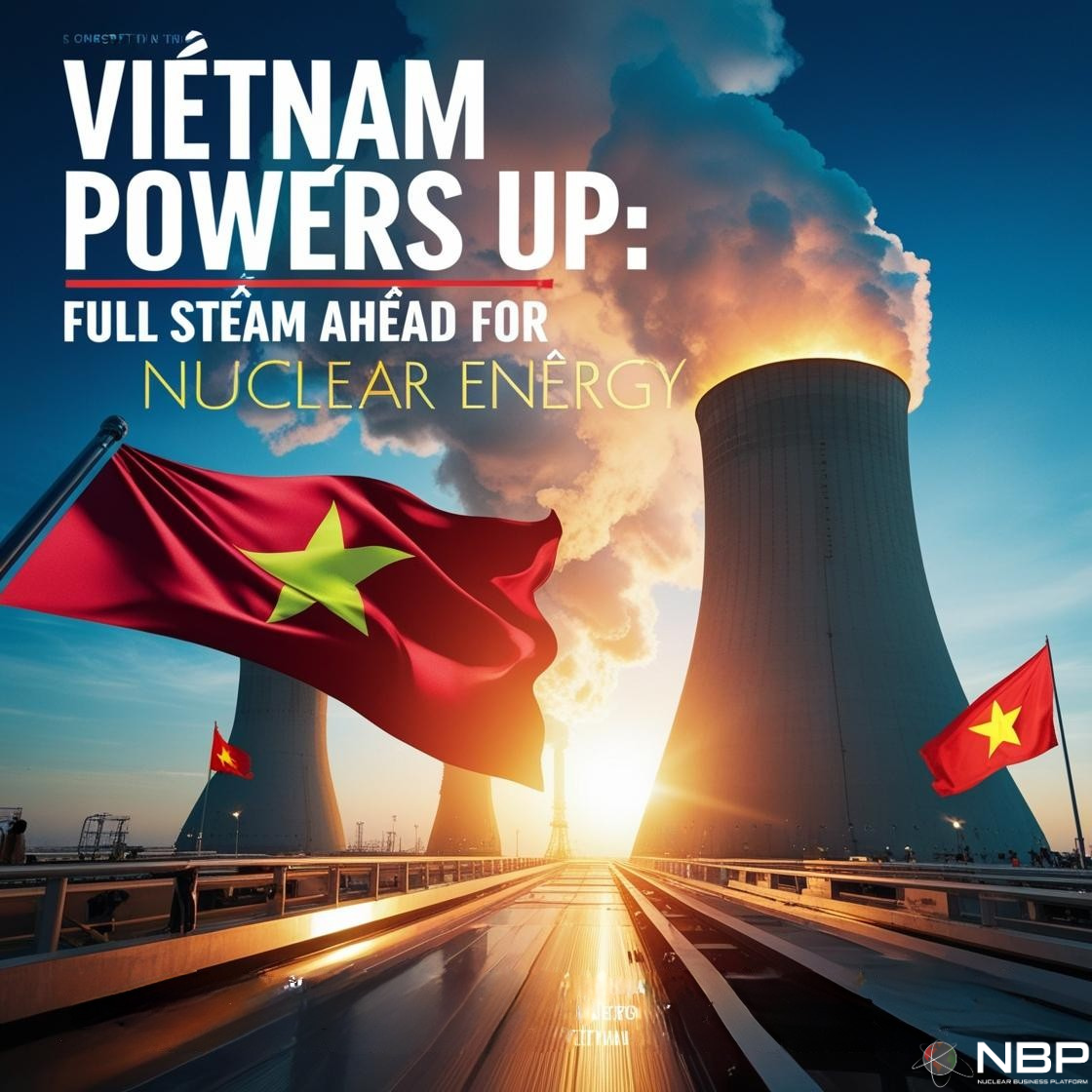Vietnam Powers Up: Full Steam Ahead for Nuclear Energy
Vietnam is embarking on an ambitious journey to reignite its nuclear power program, signaling a strong commitment to clean energy and sustainable development. With a renewed sense of purpose, the Vietnamese government is taking decisive steps to establish its first nuclear power plant in the Ninh Thuan province, aiming for completion by 2030, a significant milestone coinciding with the 100th anniversary of the Communist Party of Vietnam.
This isn't Vietnam's first foray into the nuclear realm. In 2009, the government initially pursued plans for a nuclear power plant in Ninh Thuan, even securing agreements with Russia and Japan for technology and support. However, these plans were halted in November 2016 due to economic concerns and heightened safety anxieties following the Fukushima Daiichi nuclear disaster. Now, with a renewed focus on energy security and a growing need for clean energy sources, Vietnam is revisiting its nuclear ambitions with a stronger commitment and clearer vision. The Central Committee of the Communist Party of Vietnam (CPV) officially agreed on the policy to restart the Ninh Thuan nuclear power project in November 2024.
At the helm of this endeavor is Prime Minister Pham Minh Chinh, who chairs the newly formed Steering Committee for Nuclear Power Plant Construction. This high-level committee comprises key figures from various ministries and agencies, underscoring the government's whole-of-society approach to nuclear power development. The committee was formed following the PM’s Decision No. 72/QD-TTg issued on January 10, 2025.
The Steering Committee is entrusted with a wide range of responsibilities, including identifying and resolving obstacles, refining legal frameworks, developing Vietnam’s nuclear power program, and fostering international cooperation, particularly with the International Atomic Energy Agency (IAEA).
Committee Members:
Head:
Phạm Minh Chính, Prime Minister
Deputy Heads:
Bui Thanh Son, Deputy Prime Minister, Ministry of Foreign Affairs
Nguyen Hong Dien, Minister of Industry and Trade
Members:
Huynh Thanh Dat, Minister of Science and Technology
Nguyen Hoang Long, Deputy Minister of Industry and Trade
Do Thanh Trung, Deputy Minister of Planning and Investment
Le Cong Thanh, Deputy Minister of Natural Resources and Environment
Vu Hai San, Deputy Minister of National Defense
Pham The Tung, Deputy Minister of Public Security
Pham Minh Ha, Deputy Minister of Construction
Bui Van Khang, Deputy Minister of Finance
Nguyen Minh Hang, Deputy Minister of Foreign Affairs
Tran Tien Dung, Deputy Minister of Justice
Le Anh Tuan, Deputy Minister of Transport
Bui Hoang Phuong, Deputy Minister of Information and Communications
Phung Duc Ten, Deputy Minister of Agriculture and Rural Development
Nguyen Sy Hiep, Vice Chairman of the Government Office
Ta Dinh Thi, Vice Chairman of the National Assembly's Science-Technology and Environment
Tran Quoc Nam, Chairman of the Ninh Thuan Provincial People's Committee
Dang Hoang An, Chairman of the Board of Directors of the Electricity of Viet Nam (EVN)
Nguyen Anh Tuan, President and CEO of the Electricity of Viet Nam (EVN)
In a meeting held on January 15, 2025, PM Chinh stressed the urgency of the tasks, emphasizing the need for decisive and efficient action. He called for clear thinking, high determination, and decisive actions to ensure the success of the project.
To expedite the project, PM Chinh set a five-year deadline for completion, with specific annual plans and clear responsibilities assigned to relevant ministries, agencies, and local authorities. The Ministry of Industry and Trade (MoIT) has been tasked with revising and finalizing all necessary plans related to the project by February 28.
Recognizing the importance of infrastructure development, the Ninh Thuan Province has been designated as the lead agency for preparing essential facilities such as transportation, electricity, water, education, and healthcare to support the workforce involved in the plant’s construction.
Additionally, the local government is tasked with land clearance efforts and creating policies to support residents relocating for the project.
PM Chinh also emphasized the need for a skilled workforce, instructing Vietnam Electricity (EVN) to mobilize its approximately 400 trained professionals in the nuclear energy sector immediately and identify new training needs.
To further support the project, PM Chinh called for the establishment of tailored mechanisms covering areas such as taxation, credit, land use, and human resource policies.
Highlighting the broader significance of the project, PM Chinh stated that nuclear technology represents a key area of innovation for Việt Nam’s peaceful development.
He urged committee members to act swiftly and responsibly, building on previous achievements while adapting to new challenges.
The committee’s second meeting is scheduled for mid-February to review progress and refine strategies.
Vietnam's renewed commitment to nuclear power is a testament to its dedication to sustainable development and clean energy. This ambitious project not only addresses the country's growing energy demands but also positions Vietnam as a leader in Southeast Asia's energy transition. As the world watches, Vietnam's nuclear power program promises to illuminate a path toward a brighter and more sustainable future.


